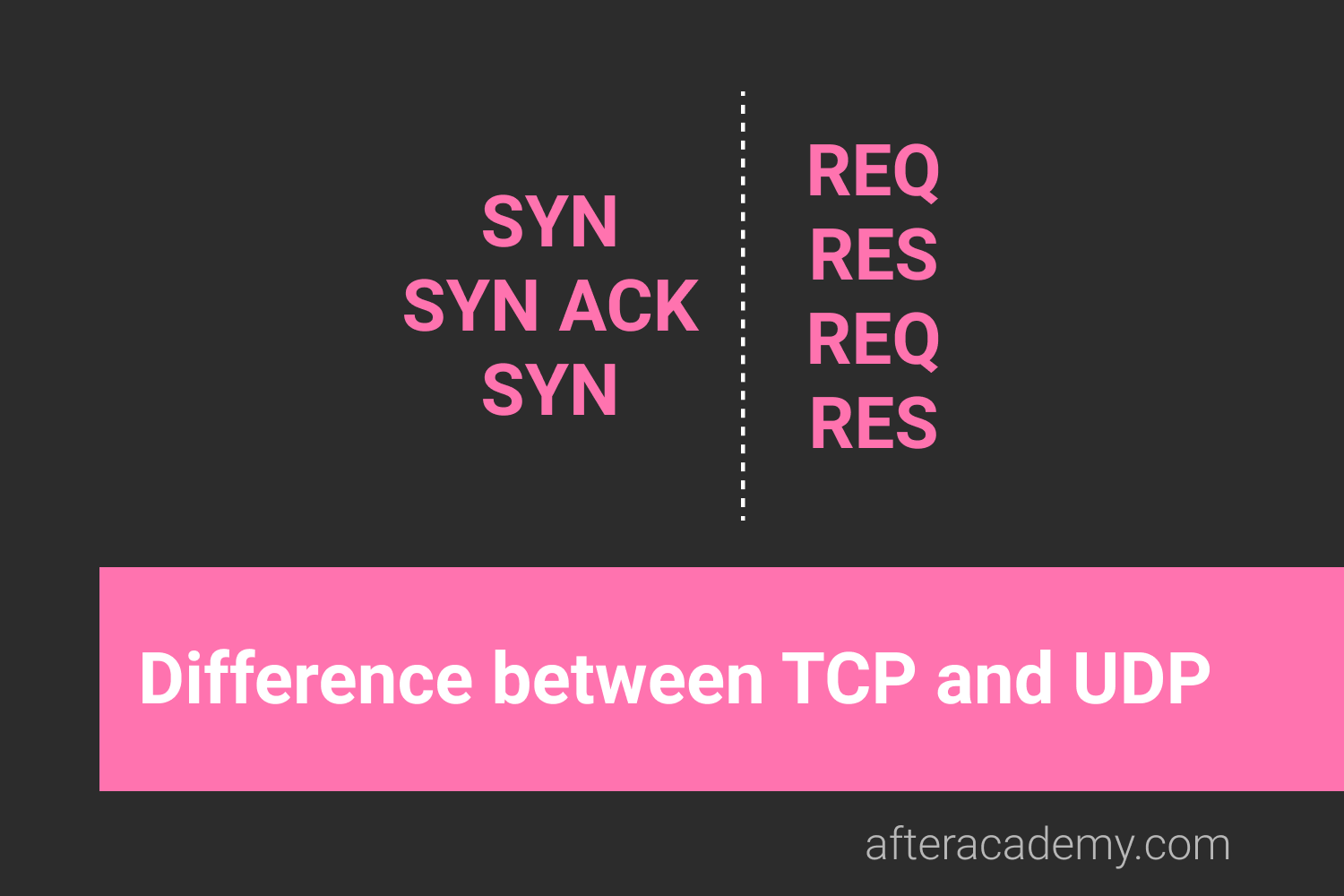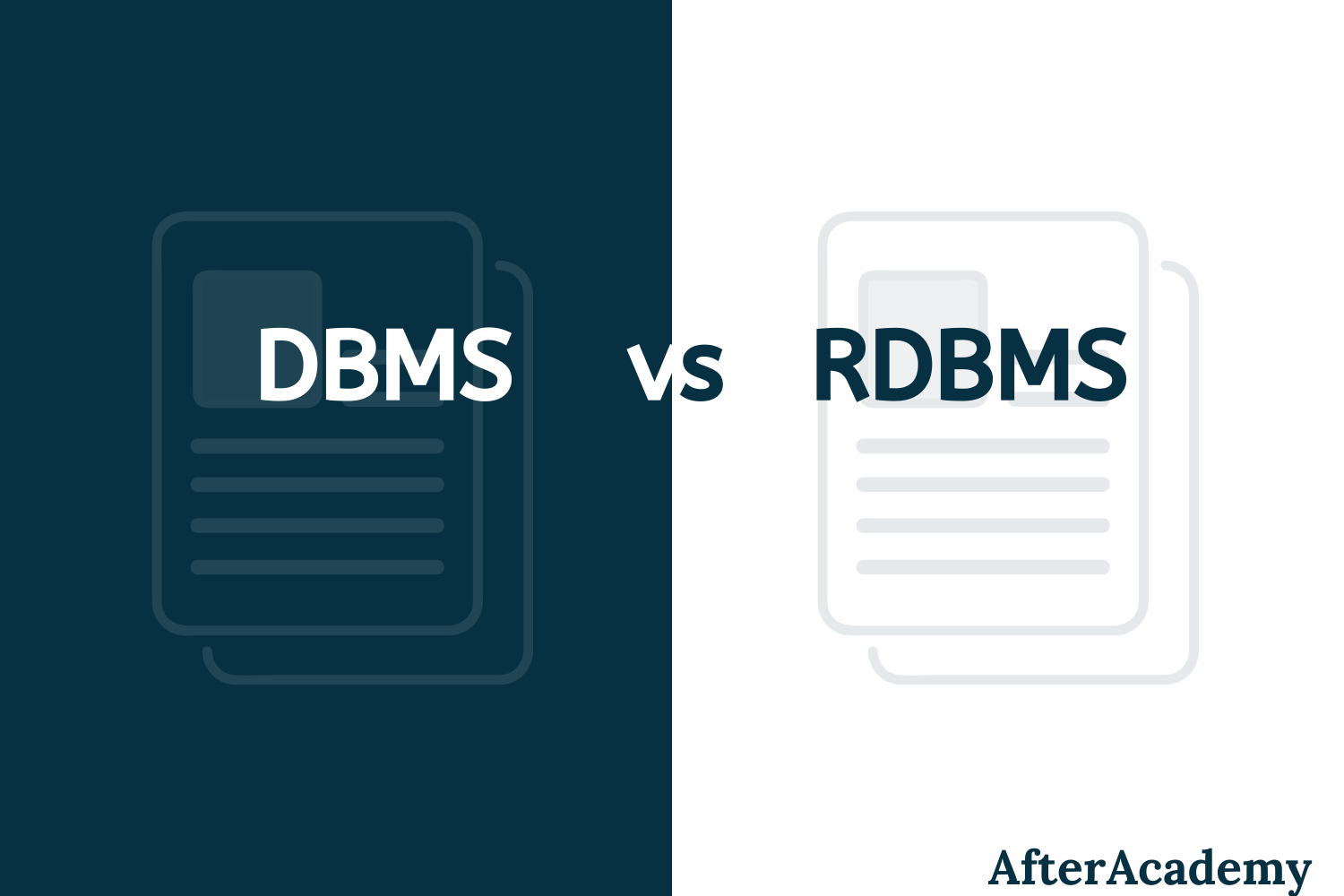What is the difference between TCP and UDP?
AfterAcademy Tech
•
18 Feb 2020

The Transport Layer in the OSI model and the TCP/IP model implements two protocols for transmitting the data, they are - TCP(Transmission Control Protocol), and UDP(User Datagram Protocol). Any of these protocols can be implemented in the transport layer as per the needs.
In this blog, we will briefly learn about the TCP and UDP protocols, and the dissimilarities between these protocols. We'll also see which protocol can be opted to implement in which case.
At first, we'll introduce these two protocols in brief.
TCP(Transmission Control Protocol)
TCP is a transport layer connection-oriented protocol. It ensures reliable connection and secure data transmission between the connecting devices over the network. It first establishes a secure connection and then transmits the data. TCP transmits the data from one device to the other in the form of data blocks. It is quite slow in data transmission but has better functionalities like flow control, error control, and congestion control in the network. The TCP header is of 20-60 bytes, and thus include various information to enhance the reliability, but the overhead is increased. Due to its reliability, protocols like HTTP, FTP, etc. use TCP for proper data transmission over the network.
UDP(User Datagram Protocol)
UDP is a transport layer connection-less protocol. It ensures the fast transmission of data between the connecting devices over the network. There is no overhead of establishing, maintaining, and terminating a connection in UDP. It is mainly used to transmit real-time data where we can not afford any transmission delays. UDP transmits the data from one device to the other in the form of continuous data streams. The UDP header is of fixed size, i.e., 8 bytes. It is unreliable in nature but faster in speed. Due to its transmission speed, protocols like DNS, DHCP, RIP, etc. use UDP for proper data transmission over the network.
Now, let us learn about the dissimilarities between them.
Following are dissimilarities between the TCP and UDP protocol:
- Connection setup: TCP is a connection-oriented protocol while UDP is a connection-less protocol. The connecting devices implementing TCP are connected together using a physical link, and the data transmission takes place through that specified link only. While in UDP, there is no need for a physical medium between the connecting devices and thus the data transmission can take place through different paths.
- Data Unit: TCP is message-oriented. It transmits the data in the form of distinct data blocks. While UDP is stream-oriented, it transmits the data in the form of continuous data streams over the network. TCP sends the whole message at once, while UDP sends it bit-by-bit in the form of continuous data streams.
- Data Delivery and Retransmission: TCP guarantees the successful delivery of data as the receiver sends the acknowledgement after receiving the data. If the acknowledgement is negative(when data is lost), TCP retransmits the data. On the other hand, UDP does not ensure the successful delivery of the data, as there is no acknowledgement mechanism in UDP. Thus, UDP does not retransmit the lost data packets.
- Transmission Speed and Efficiency: TCP transmits the data between the connecting devices using a specific physical path, while UDP can transmit the data using multiple paths. Thus, UDP is faster than TCP. Also, the TCP is heavy-weight, while the UDP is light-weight in nature. Hence, UDP can transmit the data faster and efficiently than TCP.
- Reliability: TCP is reliable in nature. It ensures reliability by providing a secure and reliable data transmission link with the help of the 3-way handshake process. The data transmission takes place in TCP only after the establishment of a reliable link. On the other hand, there is no such mechanism in UDP, and thus it is unreliable in nature.
- Flow Control: TCP takes care of the receiver's window size to check how much data it can accept and with what speed. It uses the sliding window protocols to do so. Thus, the TCP implements the flow control mechanism. On the other hand, UDP lacks the flow control mechanism, which sometimes leads to the losses of data.
- Error Control: Both TCP and UDP make use of the checksum bits(present in the header information of data) for the error control mechanism. The error control mechanism ensures the errorless transmission of the data. There is a major dissimilarity in the error control mechanism of TCP and UDP. In TCP, the error control is mandatory making use of the 16 bits checksum bits. On the other hand, error control is optional in the UDP, all checksum bits can be set to 0 to avoid error control.
- Congestion Control: TCP takes care of the capacity of the network through which the data is sent. It does so by using algorithms like AIMD(Additive Increase/Multiplicative Decrease), etc. There may be a delay in data transmission when the network is congested. Thus, TCP implements the congestion control mechanism ensuring no loss of data. On the other hand, there is no congestion control mechanism in UDP.
- Overhead: TCP is heavy-weight in nature. There is an overhead of establishing a secure and reliable connection before data transmission. There are also overheads of sending and receiving acknowledgements, and retransmissions of data in case of losses in TCP. On the other hand, UDP is light-weight in nature. There is no overhead of establishing, maintaining, and terminating a connection in UDP.
- Transmission Types: TCP transmits data through a physical link between the connecting devices. Thus, Anycasting is mainly used in the TCP. On the other hand, UDP does not use any physical link for transmitting data between the devices. Thus, UDP is mainly used for Multicasting and Broadcasting.
- Protocols Implementing TCP/UDP: Due to reliability, protocols like HTTP, FTP, SMTP, etc. use TCP for proper data transmission over the network. On the other hand, due to the transmission speed, protocols like DNS, DHCP, RIP, etc. use UDP for proper data transmission over the network.
- Application: TCP is applied when we need reliability and security in data transmission. Also, when data loss cannot be tolerated. TCP is also used for long-distance transmission of non-real-time data. On the other hand, UDP is applied where we need a good transmission speed, and we cannot afford delay in transmission. It is mainly used for transmission of real-time data over short distances.
This is all about TCP and UDP, and the dissimilarities between them. Hope you learned something new today. That's it for this blog.
Do share this blog with your friends to spread the knowledge. Visit our YouTube channel for more content. You can read more blogs from here.
Keep Learning 🙂
Team AfterAcademy!
Written by AfterAcademy Tech
Share this article and spread the knowledge
Read Similar Articles
AfterAcademy Tech
What is the difference between SQL and MySQL?
In this blog, we will learn the difference between SQL and MySQL. People use these terms intechangeably. But both are having different meanings.

AfterAcademy Tech
What is the difference between DBMS and RDBMS?
In this blog, we will learn what is RDBMS and how it is different from DBMS. People often use these words intechangeably. But there is a difference between these two terms. So, let's learn how.

AfterAcademy Tech
What is the difference between HAVING and WHERE clause?
In this blog, we will learn how WHERE and HAVING clause are used and then see what are the main differences between the WHERE clause and HAVING clause.

AfterAcademy Tech
What is the TCP/IP model and how it works?
In this blog, we will mainly learn about the TCP/IP model and its working in detail. We'll focus on the features and working of each layer of the TCP/IP model.
